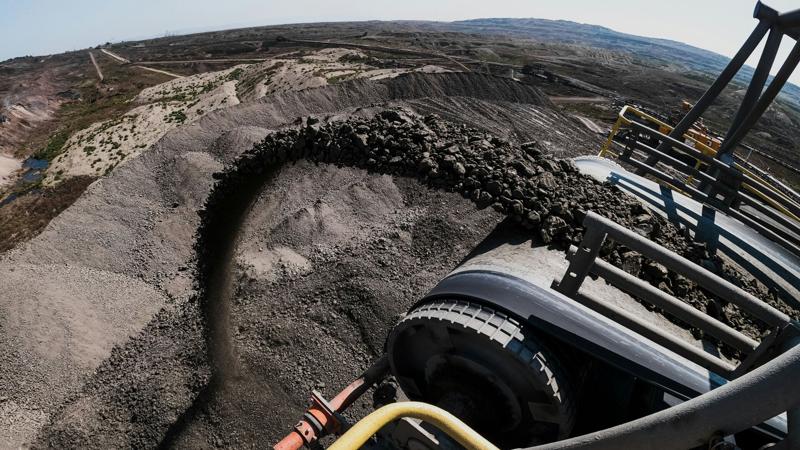Legal analysts and conservative economists are casting doubt on a high-profile antitrust lawsuit alleging that investment firms conspired to cut coal production, even as federal regulators joined the case.
The lawsuit, initially filed by Republican attorneys general, now has support from the Federal Trade Commission and the U.S. Department of Justice. It accuses BlackRock, Vanguard and State Street of coordinating with climate groups to reduce coal output – supposedly violating antitrust law.
However, critics say the facts don’t support that claim.
The Wall Street Journal editorial board wrote that “the suit’s logic is so strained that it could open the door to all sorts of government meddling in markets under the guise of enforcing antitrust laws.”
The editorial board added that “the lawsuit offers no evidence that Vanguard, State Street or BlackRock conspired to reduce coal production, let alone succeeded in doing so.”
The complaint names Peabody and NACCO as companies that received the most pressure to cut coal output. Peabody’s controlling shareholder from 2020 to 2024 was Elliott Management. Additionally, NACCO is majority-controlled by its founding family through super-voting stock, holding nearly 70% of the voting power.
Critics also note that coal production started declining around 2008. They say it started declining due to the rise of cheap shale gas, making natural gas a cheaper and more environmentally friendly alternative. Notably, the natural gas prices at Henry Hub fell by over 60% between 2008 and 2012.
“The U.S. transitioned away from coal, not because of a cabal, but because coal is comparatively costly to produce compared to natural gas,” an analysis from the Pacific Research Institute said.
Additionally, economist Stephen Moore, a former adviser to President Donald Trump, also criticized the lawsuit.
In a column, he called it “one of the most convoluted lawsuits of all time.”
“They allegedly invested in coal companies, then partnered together with climate change groups to drive coal companies bankrupt, which then drove up the price of coal. If that tactic worked to make money, Kellogg’s would stop making Frosted Flakes so that the price of the last boxes on the grocery store shelves sold for $100,” he wrote.
Moore wrote that State Street has been “a strong and persistent supporter” of some shareholder resolutions that align with green energy goals. However, he added that “Vanguard almost never votes in favor of resolutions hostile to the industry. And BlackRock in recent years has sworn off the environmental, social and governance investing fad.”
Meanwhile, the Wall Street Journal op-ed notes that coal output increased in some of the years covered by the lawsuit.
“As the lawsuit concedes, coal companies increased production after the asset managers joined the alliance or cast proxy votes against board directors,” the editorial said.
Moore thinks the coal industry will suffer the most from the lawsuit.
“The biggest loser will be the coal industry itself,” he said, “as a guilty verdict would chase billions of dollars of desperately needed investment out of the industry for many years, which will mean coal miners will lose their jobs.”
He also noted that several coal-state attorneys general opted not to sign on to the lawsuit.
“This may explain why many of the state attorneys general from coal-producing states like Kentucky and Ohio didn’t join this flimsy case,” he wrote.






